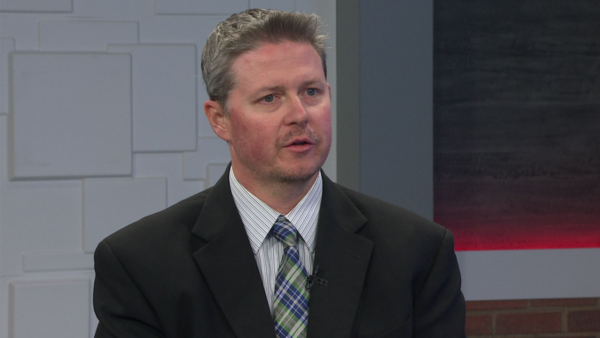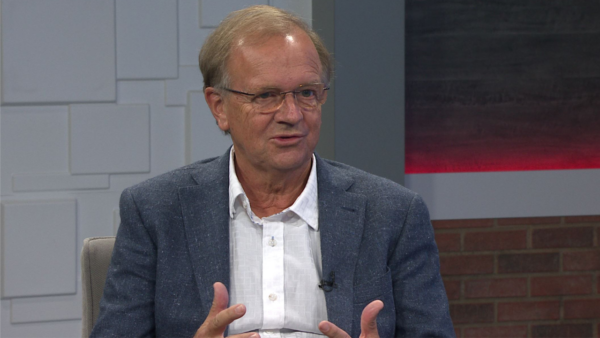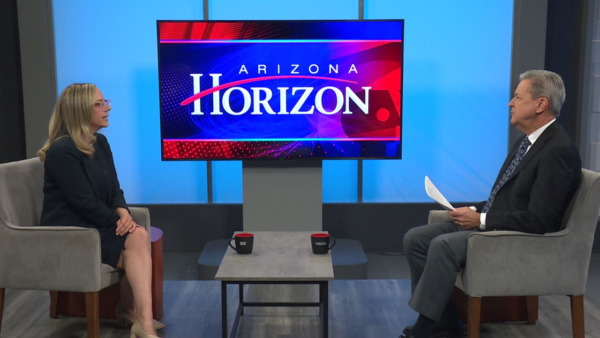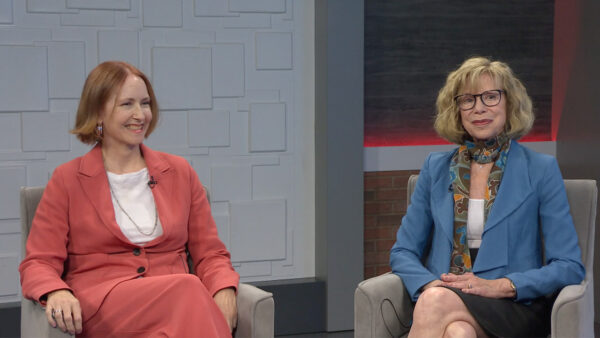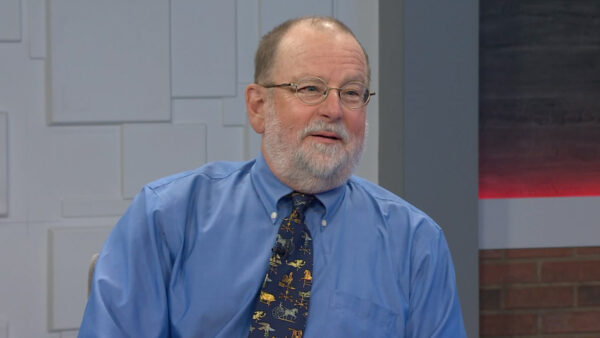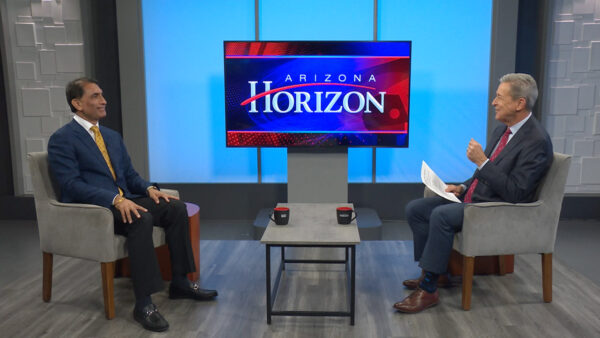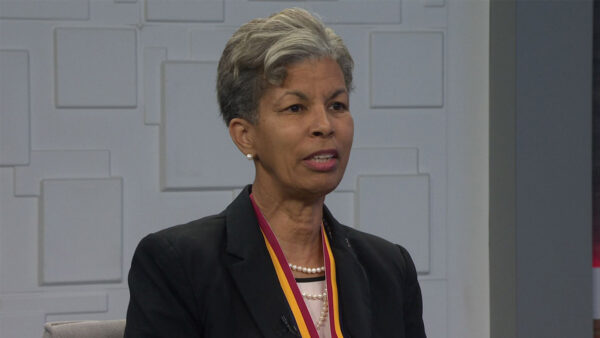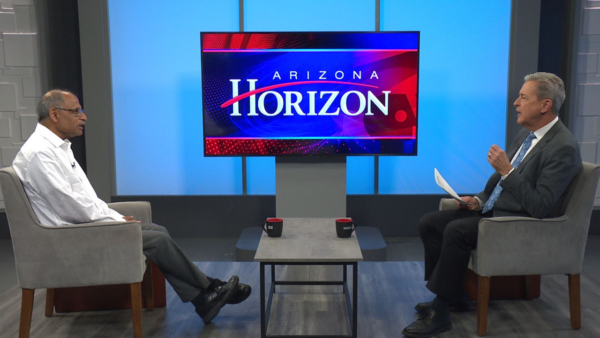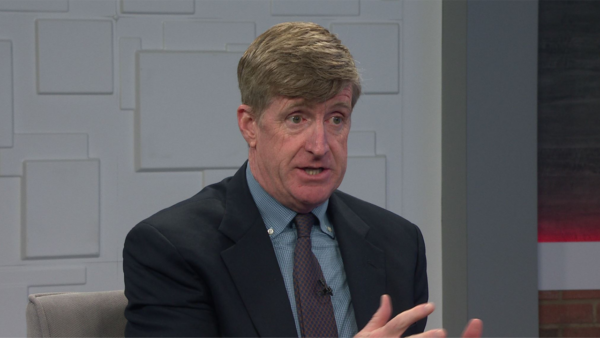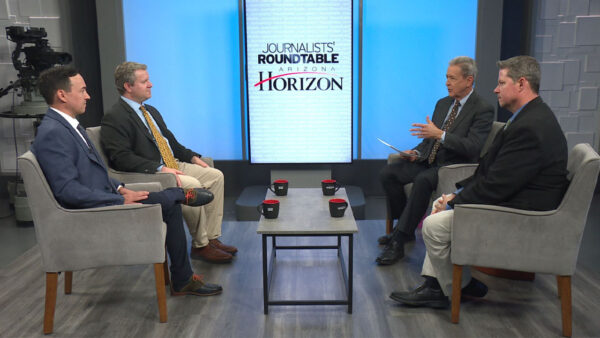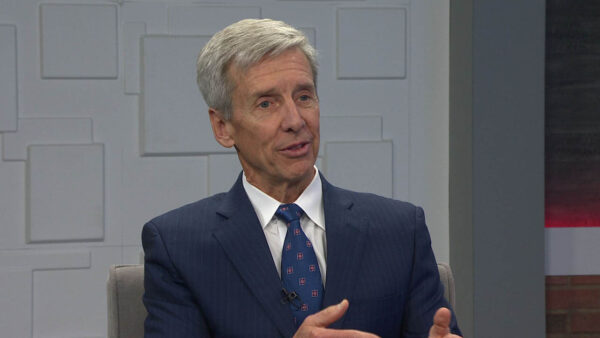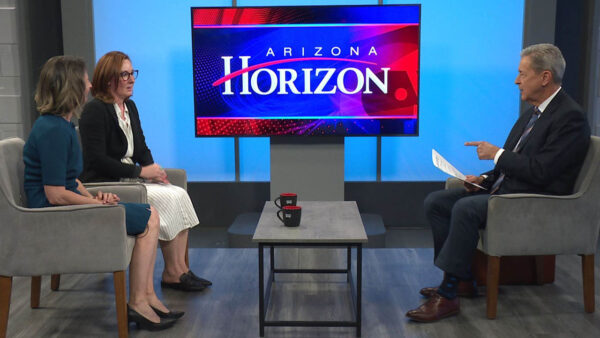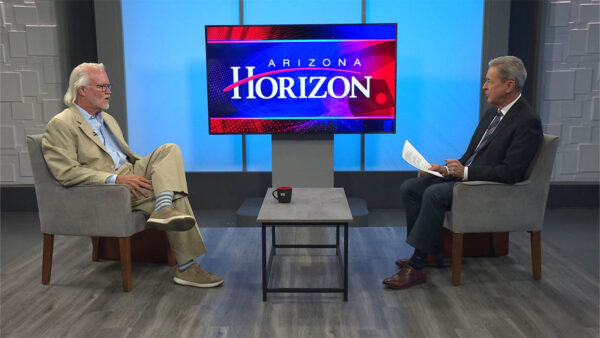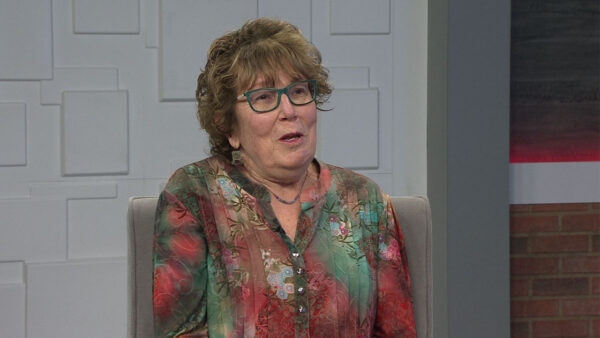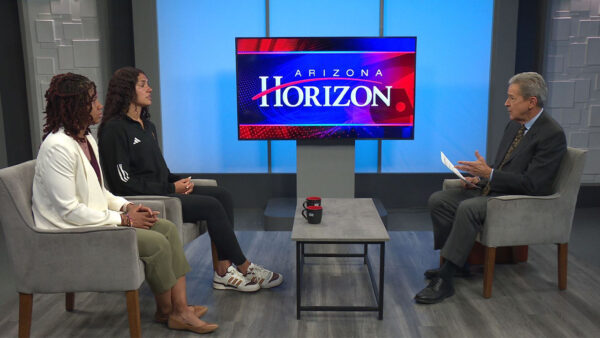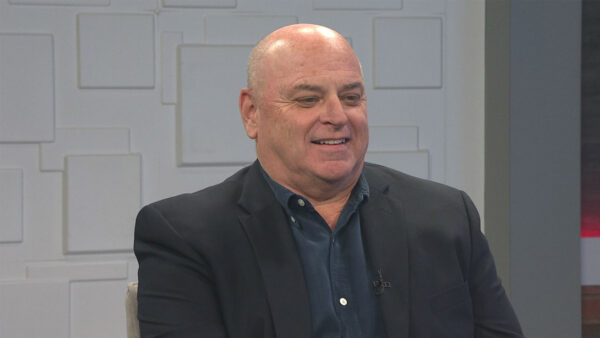A new report reveals the cost to operate the Coyotes Home Arena, Jobbing.Com Arena, is millions less than the Glendale City Council was willing to pay potential operators. Paul Giblin of the Arizona Republic tells us more.
Ted Simons: Good evening. Welcome to "Arizona Horizon." I'm Ted Simons. The true cost of operating Glendale's jobbing.com arena is a significant point of contention in efforts to keep the Phoenix Coyotes in town. The Arizona Republic's Paul Giblin joins us now. Thanks for joining us.
Paul Giblin: Nice to see you to Ted.
Ted Simons: Disconnect on how much it costs to operate that arena. Talk to us.
Paul Giblin: Something of a mythical figure that no one could get their hands on. At least no one in the city could get their hands on it. But I found it on the city's website. The city right now is soliciting a new manager for the arena, and as part of the solicitation package they put the profit and loss statements from the current company that's operating the arena, operated by a subsidiary of the NHL, so there they were. Profit and loss statements for the past three years.
Ted Simons: It sounds as though the true costs are what, five-six million bucks?
Paul Giblin: Five-point-one million one year, five-point-five million another year. It costs more than that to operate the arena, but the manager gets some money back. When you do all of the math it comes out to five-point-five million and five-point-one million.
Ted Simons: Glendale has been paying how much?
Paul Giblin: That's an interesting question. They agreed to pay the NHL 25 million dollars. Now you can make a lot of arguments that the money could attract business to that development out there, come back through taxes and that sort of thing, but if you go the videotape of their city council meetings, look at the old tapes, they say specifically this not to subsidize the team, it is strictly for management of the arena. So that is 25 million dollars. They agreed to that twice. Their last dealings with a potential buyer for the team, they agreed to pay him 15 million dollars a year.
Ted Simons: Who figured out those costs? Who decided that 5155 makes sense? And who decided that 20-25 was a good deal?
Paul Giblin: These are the profit and loss statements from the NHL subsidiary running it. If the NHL says this is our profit and loss statement, this is what it costs, that's tough to argue with. The decisions to pay more than that, the 25 million and then later the 15 million, which didn't happen, those were decisions by the city council.
Ted Simons: So again, the variation here is huge. What's going on? How did it get this way? What's happening?
Paul Giblin: That's a good question. If you listen to what the people are saying they say strictly for management of the arena, but when you look at the profit and loss statements it's much more. You can throw in other things. If you want to say there's maintenance involved in a huge building like that. If it included maintenance that might push up the number but that's not what anyone ever said leading up to the decision.
Ted Simons: what reaction are you getting from city officials on this?
Paul Giblin: I took the profit and loss statements available on the website and I showed it to the mayor and to several of the city council members. I said, what do you think of this? She said, what is that? I said this is the NHL's figures on what it costs to run. They said I was completely unaware of that. Without exception that's what they said. I floated it around to other people who would be in the know and make it was correct and they said that's it. Yep.
Ted Simons: It sounds as though and you reported for the fiscal year '14 budget Glendale is penciling in $6 million for the operating budget.
Paul Giblin: That has gone through a lot of public hearings and meetings. They are arguing about whether they can pay a deficit that the fire department is supposed to have. The fire department says we have a deficit. We don't have money for fuel for the trucks and for maintenance because the call volume has gone through the roof. City council said we don't have money to cover that. The fire chief said I'm probably going to close a fire station unless you cover this. They said we still don't have the money for it. That's how tight the numbers in Glendale are right now.
Ted Simons: With 6 million dollars -- you've had all these offers of 15 to 20 and who knows what up there, how does that impact negotiations now to keep the Coyotes in Glendale?
Paul Giblin: That's a good question too. Now, keep in mind that the city had a deal with a guy named Greg Jameson, CEO of the San Jose Sharks. He had until December 31st of this year to buy the team to get a management deal with the city. The city was going to pay him $15 million. Shortly after he didn't come up with the money and the deal went away, then a bunch of other potential buyers started showing up. One guy named Anthony LeBlanc appears to be the frontrunner now. Back then I spoke to him he said he was interested but would need a deal similar to the one Jameson had for $15 million. Now months later he's in the front with another rich guy named George Gosby, both Canadians, a few other investors, and presumably he has not changed. I tried talking to him recently. He's not speaking now.
Ted Simons: Is there any likelihood someone would buy the team but not operate the arena because that seems highly unlikely from a distance. It sounds like all this extra money was thrown in there to attract buyers and even if you couldn't -- if Holsizer couldn't get folks to join his team with that kind of money thrown in, six million bucks, eight million bucks, good luck, fella.
Paul Giblin: Their finances are outside my earshot. I don't know, perhaps these investors think $6 million is enough. I don't know. We'll have to see how it shapes up in the next several weeks.
Ted Simons: Do you think, though, someone would buy the team but not operate the arena?
Paul Giblin: I would think not. In fact I'll tell you no. I have spoken to all the frontrunners in this thing, not just LeBlanc's group the other groups. They all said the management component is vital to their interest in buying the team. Without that I don't see it happening.
Ted Simons: So LeBlanc is this renaissance in sports entertainment. A first line, though, but first line in what? It doesn't sound good to be quite honest. We report on this all the time, Paul. How many stories have we done are they staying, are they going, it sure does seem like they are starting to skate away.
Paul Giblin: I'm not sure. I will tell you that group renaissance sports and entertainment, these are guys with deep pockets. Deep pockets and a high interest in hockey. The two leading guys are Canadians. They see that market could work because the new alignment with the NHL will put the Coyotes in a division where they would expect to get a lot of Canadian hockey fans coming down from Canada to watch the game and get hot weather, get out of the snow. They think it can work. I don't know if it will work. We'll have to see.
Ted Simons: Sounds like with potential bids in late May, the Glendale budget early June, it's coming up.
Paul Giblin: There's about three weeks from when the bids are due until city council is supposed approve the budget.
Ted Simons: Great work. Good to have you here.
Paul Giblin: Great to be here again.
Paul Giblin:The Arizona Republic;





